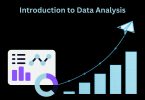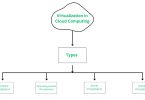Overview:
Machine learning is widely used in healthcare cases. Machine learning and AI are used to play a serious role in central nervous system clinical trials in the future, rendering to a story in the Mercury News. Machine learning allows building models to rapidly analyze data and deliver results, leveraging ancient and real-time data. Machine learning transforms the healthcare industry is through the progress of discovery and manufacturing of drugs.
MACHINE LEARNING IN HEALTHCARE:
- Microsoft
- Tempus
- PathAI
- Kareo
- Beta Bionics
- KenSci
- Pfizer
- Insitro
- Microsoft:
Microsoft projects and machine learning is used differentiate between tumors and healthy anatomy with the help of 3D radiological images that contribute the medical experts in radiotherapy and surgical planning.
- Tempus:
The aim of tempus is to make innovations of cancer research by collecting massive amounts of medical and clinical data to deliver modified treatments for patients.
- PathAI’s:
By this technology employs machine learning to help pathologists make quicker and to correct diagnoses. The company also offers AI tools for collecting patient info, processing models and rationalization other tasks for clinical trials and drug development.
- Kareo, a Tebra company:
By this technique you can improve business needs of independent practices, The purpose of Kareo to offers a cloud-based clinical and business management platform. Organizations can transfer patient health and financial data over to Kareo’s billing platform, for managing records easily and complete transactions. Kareo applies AI technology to automate repetitive tasks, wounding down even more time and operational costs for physicians.
- Beta Bionics
Beta Bionics is used to make the lives of diabetes patients more stress-free, iLet is development of Beta Bionics wearable “bionic” pancreas. It si a device that is used to still in the investigational stage for the purpose of constantly monitors blood sugar levels in patients with Type 1 diabetes.
After this patients don’t have to bear the load of tracking their blood glucose levels on a daily basis.
- KenSci:
For the prediction of illness and treatment kenSci is used by machine learning. Accordingly physicians can intervene earlier and help patients avoid potentially serious events. By KenSci’s analytics, healthcare professionals can also envisage risks of health population through identifying patterns and surfacing high risk markers and model disease progression.
- Prognos:
Prognos Health gives clinical benefits affiliations more complete patient profiles by using AI to orchestrate and explore data from cures, clinical cases, lab results and various sources. With the association’s business community Prognos Factor, associations can quickly offer and gain prosperity data to recognize diseases, embrace plans and note openings in care.
- Berg’s Interrogative Biology:
This is a platform employs machine learning for disease planning and treatments in oncology, neurology and other rare conditions. Utilizing patient-driven science and information, cell models and clinical information, the organization permits medical services suppliers to adopt a more prescient strategy as opposed to depending on experimentation trial and error.
Real-life Models of ML in Healthcare
The use of machine learning is highly beneficial in the improvement of patients’ well-being through the development of individualized treatment plans, and disease identification at an early stage with appropriate decisions.
Developing Predictive Modeling
This is a strategy in which models are built based on past data to work out trends to be used in future predictions. In essence, this application holds a lot of potential in helping to enhance the health of patients by presenting precise treatments for high-risk clients.
For example, in the healthcare sector, artificial intelligence can determine which patient is likely to develop sepsis, a potentially fatal complication in a hospital.
Improving Diagnostic Accuracy
Clinical decision support tools apply machine learning to diagnose disorders and ultimately improve the clinical results of a patient. Some of these tools include a system that draws information from patients’ EHR to help clinicians make the right decisions on the best treatment to prescribe.
For instance, a clinical decision support tool can suggest the suitable antibiotic to prescribe when treating bacterial infection based on parts such as the age of the patient, weight of the patient, and the patient’s allergic reactions and medical history.
Click here to learn about: How can you use Chatgpt for Business
Personalizing Patient Care
Machine learning empowers the ability of an analyst to dissect vast datasets in the healthcare sector. The aim is to identify patterns and trends in the data which can assist in the formulation of a treatment plan that is unique to a given patient.
The use of EHR data will allow the application of machine learning, which is able to detect symptoms that indicate the presence of certain diseases or adverse reactions to medications. Such information can be useful in the formulation of new therapeutic interventions or safety measures which may improve patient health and safety.
Automating Clinical Workflows
In healthcare ML decreases the burden of work that involves performing administrative roles like billing, scheduling, and record keeping. Automating this process is in the interest of patients, healthcare providers and insurance companies, as it frees up time for more important work in addition to saving money.
Use of machine learning algorithms can enhance the billing process to facilitate accurate and timely processing of claims, thus lowering the administrative burden and increasing billing cycle rates.
Interacting with Patients
People apply it to create chatbots and virtual assistants that assist patients with chronic diseases such as diabetes or asthma. These AI applications offer a tailored outlook to patients depending on factors like blood glucose level, lung capacity etc.
Since the availability of medical staff is limited, enhancing the interfaces of patient communication becomes paramount. This means it can be used in the intake process where a patient completes a questionnaire and the responses can be read by the doctor before or even during the consultation. This leads to specific communication and increased awareness of the medical history, which contributes to the improvement of the patient’s condition.
In conclusion, ML use cases in healthcare ranging from predictive analytics to diagnosis precision, to treating patients individually, to automating processes and even patient engagement are transforming healthcare by offering solutions that are faster, more accurate, and more personalized.






Leave a Comment